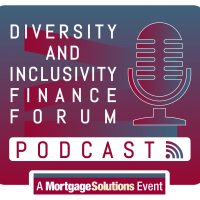
Michele Golunska, chief executive of Sesame Bankhall Group, said: “If this was a race, it’s not a 200m sprint where you say ‘okay that’s what we’re going to do, I’ll do this and hit the targets’. It’s a relay. Everyone in your business will hand the baton through.
“If this starts from the top down or bottom up or through the organisation, this has to be something that’s understood. You have to constantly keep going at this,” she added.
Golunska said she had seen a focus on gender and sexual diversity both at her current role and while she was at Aviva but noticed there was not sufficient data on the representation of Black, Asian and minority ethnic (BAME) employees.
The network had since begun a survey to address this, but Golunska said she suspected that as a business it was not alone in having a lack of data.
Pete Gwilliam, owner of mortgage industry recruitment agency Virtus Search agreed and said the Women in Finance Charter had helped to change the culture towards female employees in the sector.
However, to address racial inclusion he said the industry needed to push into a “much deeper cultural change to get BAME representation at the levels that national demographics suggest we should be aspiring to”.
Golunksa added: “As a sector and an employer and commercially we need to reflect the society we serve and understand their wants and needs.
“And that includes the wants and needs of people who work for us and giving them the opportunity to develop and progress and I’m passionate about levelling that playing field.”
Modernise recruitment techniques
Gwilliam said the industry needed to update and challenge the ways it usually looked for new recruits.
He said the industry should “broaden, widen, deepen how we source and actually concentrate on skills and lived experiences, rather than necessary aspects to people’s backgrounds that we just feel comfortable with because we’ve seen that before”.
Golunska said setting targets for increasing the numbers of diverse staff could be helpful.
“In the normal course of running a business, you would have targets and that gives you an ability for you and your team to focus on the important things,” she added.
However, she said businesses needed to use their own performance to address shortcomings and investigate why employees might leave the business to see if there was a incompatibility with the company culture.
Uncomfortable mistakes
When asked if fears over using the wrong terms prevented discussions around diversity altogether, Gwilliam said people should be more vulnerable in accepting that mistakes will be made.
He said: “Asking yourself the question ‘am I inclusive?’ most people by default think that they are. We don’t really ever examine it objectively and I think it’s really important that we’re all able to be open enough, vulnerable enough, prepared enough to ask ourselves, ‘really? Is that inclusive enough?’
“Only by accepting that you’ll trip over slightly the wrong use of language and make the odd confused acronym – those things are going to happen but we shouldn’t lose sight of if the intention is good.”
Golunska added: “We need to be forgiving where people are desperately trying to understand and educate themselves.”















